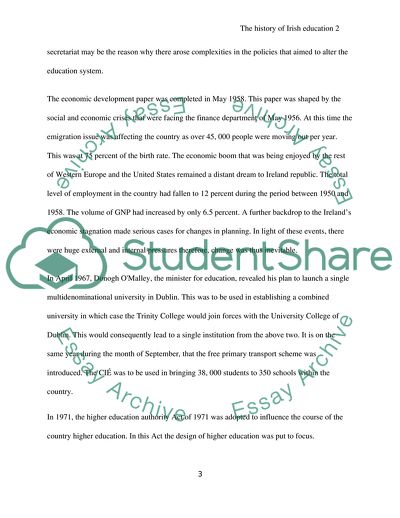Cite this document
(The History of Irish Education Coursework Example | Topics and Well Written Essays - 2000 words, n.d.)
The History of Irish Education Coursework Example | Topics and Well Written Essays - 2000 words. https://studentshare.org/education/1731852-the-history-of-irish-education-2
The History of Irish Education Coursework Example | Topics and Well Written Essays - 2000 words. https://studentshare.org/education/1731852-the-history-of-irish-education-2
(The History of Irish Education Coursework Example | Topics and Well Written Essays - 2000 Words)
The History of Irish Education Coursework Example | Topics and Well Written Essays - 2000 Words. https://studentshare.org/education/1731852-the-history-of-irish-education-2.
The History of Irish Education Coursework Example | Topics and Well Written Essays - 2000 Words. https://studentshare.org/education/1731852-the-history-of-irish-education-2.
“The History of Irish Education Coursework Example | Topics and Well Written Essays - 2000 Words”. https://studentshare.org/education/1731852-the-history-of-irish-education-2.


